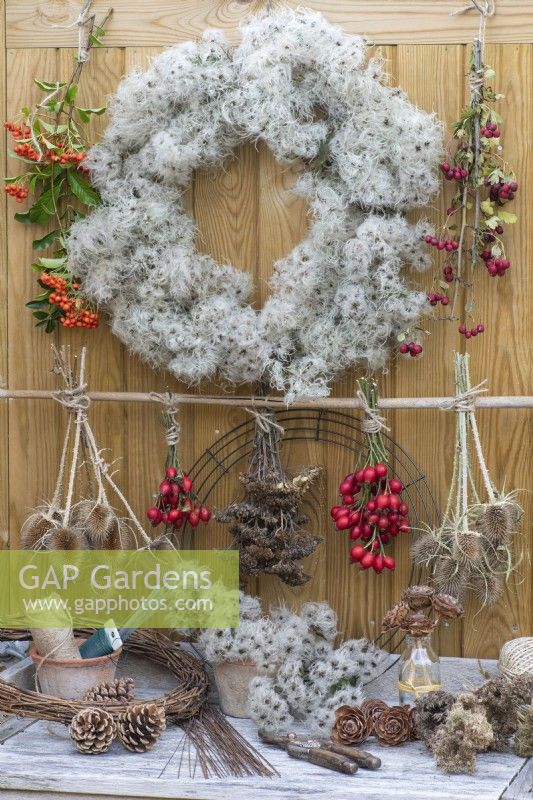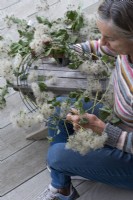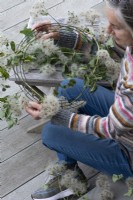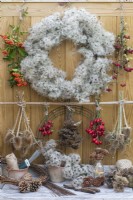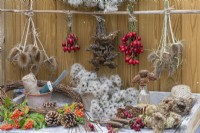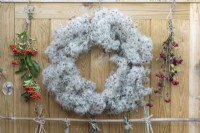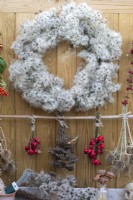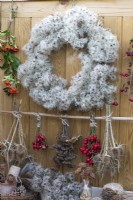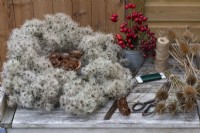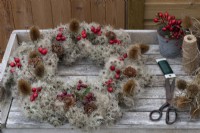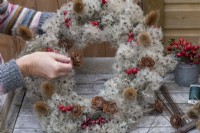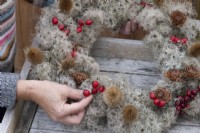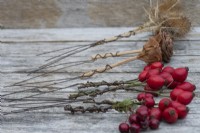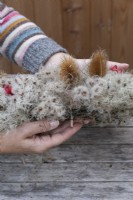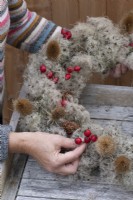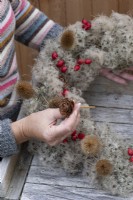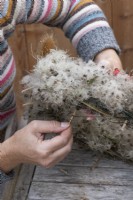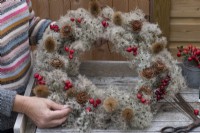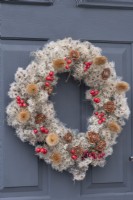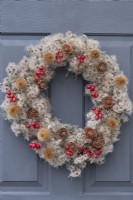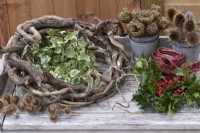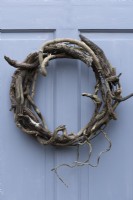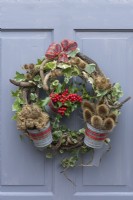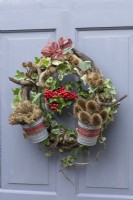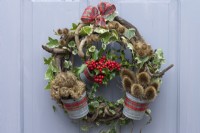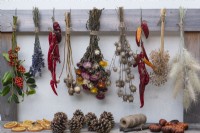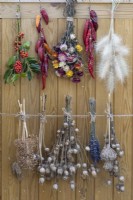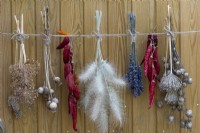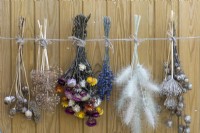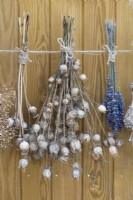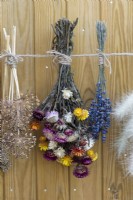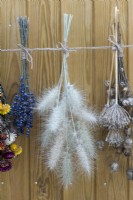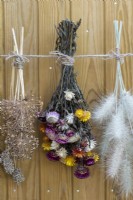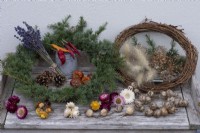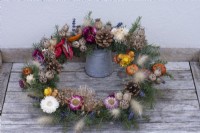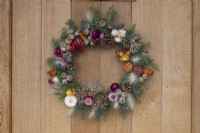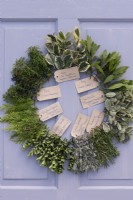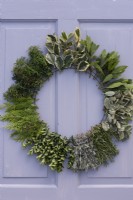Synopsis
As midwinter draws closer, it's an ideal time for a Sunday stroll in search of the seasonal decorations that nature gives freely to weave into Christmas wreaths. In hedgerows, flurries of old man's beard are entwined with ivy, prickly teasels, rose hips and berries, whilst the woodland floor yields fircones, cedar seed cones, twigs, acorns or the outer husks of beech nuts. Meanwhile the garden yields seedheads from alliums, honesty, poppies, Chinese lanterns, nigella, ornamental grasses and globe cardoons. There are also many flowers that dry well helichrysum or everlasting flowers, sea hollies, hydrangeas and small bunches of lavender as well as red chilli peppers.
In preparation for making a wreath from dried decorative plant material, each piece should be wired using 10cm - 15cm lengths of florists' wire or garden twine, ready to secure firmly onto a frame. A Christmas wreath needs to last for at least a month, so a florists' wire frame is a good choice. Costing less than a pint of ale, these metal frames come in a range of sizes a 14in or 16in frame stands out well on a front door. Remember that a circle of foliage attached to the frame will increase its overall size, so check first that the finished wreath is not too wide.
A resilient circular frame can also be made by twisting together long lengths of fresh vine-like stems, and binding together with string or wire before handing in a cool dry place to dry. Suitable plants include old man's beard, grapevines, willow whips, hazel branches and dogwood which can be soaked first to make it more pliable. Ideally, the finished frame needs to be around 3cm thick and wide in order to provide a good anchor for wired plant material.
|
|

